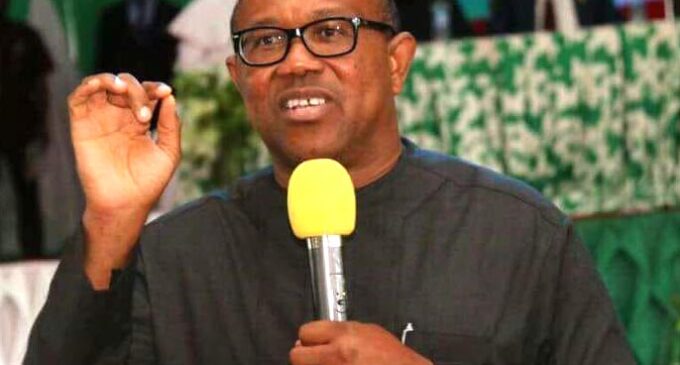
Peter Obi, former governor of Anambra state has advised state governments to improve their revenue generation capacity.
The Federal Inland Revenue Service (FIRS) and some state governments are currently embroiled in a legal tussle over VAT collection.
Rivers and Lagos state governments have called for decentralisation of collection, but other states want acentralised collection.
Speaking on the issue when he featured on Politics Today, a Channels Television programme, on Sunday, Obi expressed optimism that fiscal federalism will make Nigeria more productive.
He said that discussions on fiscal federalism in Nigeria should be centred on revenue generation, instead of revenue sharing.
Fiscal federalism is the division of revenue collection and expenditure responsibilities among different tiers of government.
In Nigeria, states collect personal income tax (PIT), withholding tax (WHT) on rent while FG collects company income tax (WHT), amongst others.
“My stand on the issue of fiscal federalism hasn’t changed because it will make the country productive. Whenever such controversies come up, what bothers me is that the country always concentrates on sharing, nobody is talking about how to generate income,” Obi said.
“Nobody is talking about production. The country is not productive, that is why we are preoccupied with sharing.
“If we are productive, it will be very easy for Nigeria to grow, be able to create jobs and do what others are doing.
“Every part of Nigeria has the potential to grow and compete, but we are not doing that.”
Citing reports that Anambra has joined oil-producing states, Obi said that Nigeria needs to move away from seeing resource control from an angle of natural resources but more on investment in people.
“Oil is a dead asset. With the plans we had when I was in office, if it was followed by the next administration, Anambra would have generated way more than Nigeria generates from oil,” the former governor said.
“Because when you talk about oil, how much are you (Nigeria) getting from oil? $18 billion, that’s all we are getting from oil.”
According to him, this figure stated as Nigeria’s oil revenue can’t be compared with what other smaller states get through investments in education, information and communication technology (ICT), and health.
“If you do these investments properly, pull your people out of poverty, you would see that the money you are talking about in terms of what we are getting from oil is not much,” he explained.
Obi said he doesn’t see Anambra generating up to half a billion dollars from oil in the next ten years.
But he said that if the state continued what his administration started by targeting to raise $2 billion by 2030 and distribute the money to support SMEs, the state would generate five times that amount from massive industrialisation and exports.
“I believe in fiscal federalism, it will help the country grow. At this point, the country is not growing, and productivity is very low,” Obi added.
